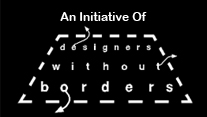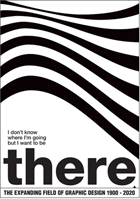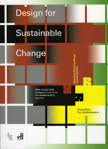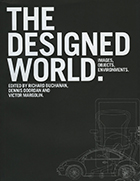David Stairs
Since when did coding corner the market on the definition of “smart”?
I recently attended a UCDA design conference where Helen Armstrong was one of the keynoters. Ms. Armstrong, a multiply-credentialled academic with deep ties to the AIGA, talked about Big Data, and how designers can/should employ it to their benefit.
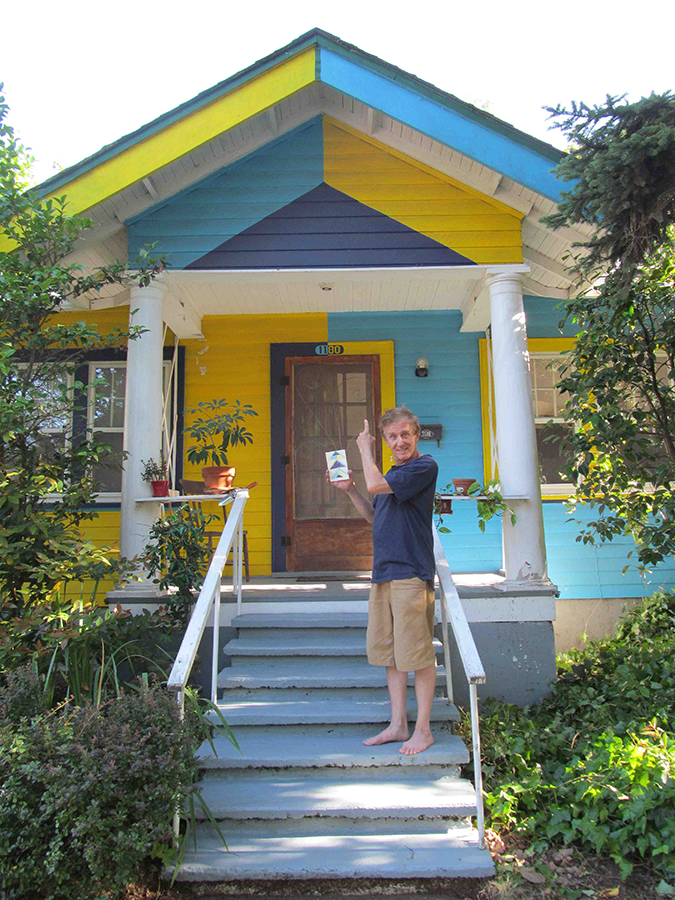
Yellow-cyan-indigo paint scheme non-algorithmicly determined
Armstrong began her presentation by asking the audience how many had interacted with data that morning. Of course, nearly every hand in the room shot up in a classic example of techno-enthusiasm. As an instance of the apparent ubiquity of computing technology, I suppose the question is inescapable. But as an example of putting convenience above discretion, it was more telling still. I too, had recently visited the Amazon site. I’d nearly been tempted to sign up for a no-charge Amazon credit card, which would have saved me $50 on that purchase. I had the forms all filled in when I thought better about the personal info I was about to relinquish to big data. It seemed more valuable than $50, so I cancelled the transaction.
News stories about the ways that ubiquitous computing, cloud computing, big data, or smart phone apps are changing our day-to-day existence have become relentless. More of this techno-triumphalist cheerleading is certainly unneeded and unwelcome. It is not surprising to find it seeping into such vulnerable audiences as those at design conferences who, generally, are “techno true believers” and “early adopters.” But when you stop to consider what is being compromised, the gains lose a lot of their luster.
Armstrong cited some of the most famous applications of Big Data, like autonomous vehicles and facial recognition. To her credit, she also mentioned the down side of ceding control, citing examples such as the Cambridge Analytica data breach, or the implications of retailers like Walmart employing universal recognition surveillance to determine the “happiness” of customers. But I propose that the problem goes much deeper, all the way to the core of what it means to be human.
Ms. Armstrong also talked about how Google uses images from its geographic recognition software as “captcha” instances, the better to employ everyone’s involuntary participation to improve their location algorithms. I asked Armstrong if she was encouraging us to help make machines smarter while making human beings dumber. She averred that it was “a conversation that needed to happen.” Unfortunately, as evidenced by the Facebook CA debacle, such controversies are only mooted after they become public, and it is in most corporations’ best interests to stonewall public inquiries into their proprietary assets. Just ask Mark Z.
The other end of the human equation that I hear people talking about has to do with the huge experiment in behavior modification corporations are running on our youth. Educators are constantly complaining about how students don’t write as well, can’t remember as much, don’t exercise memory without access to technology, and generally seem less capable than once-upon-a-time. Granted that academics are accomplished bellyachers when it comes to the “younger generation,” but I’m still concerned about the way traditional skills are being eroded by superficial gratification and ephemeral convenience.
My standard example of self-reliance is way-finding. As a point of pride, I do not use GPS when I travel. Typically, I prepare for a journey by researching the route, understanding directions, etc. I’ve left for a multi-car field trip and beaten students to the destination because their GPS sent them in the wrong direction. For the UCDA conference I drove 700 miles in an unknown direction to a part of the country I’d never visited. When I got lost in the western reaches of rural Virginia I stopped to ask directions, which I’ve also done in downtown Detroit and the heart of Africa. If I’d been using GPS I would have subbed Siri’s default voice for the soft gentle twang of the local Virginia dialect, which was a definite improvement. Armstrong told me that one of her daughters, who is autistic, benefits from using GPS to navigate in her own neighborhood. This left me at odds, wondering how Helen Keller ever survived, let alone prospered, without the benefit of an app.
Different times evoke differing solutions, I suppose. GPS is only one possible example where I might invoke a memory of Helen Keller. When I try to use voice recognition software to transcribe subtitles for film, the mistakes are so legion that I might rewrite the text from scratch in the time it takes me to correct the transcription errors. Conventional wisdom recommends that I search for better software, maybe something Google has crowd-sourced from the public without permission, but the Luddite in me recoils.
Of course, there are adverse examples, too. I did not have the details of the venue I was to present in at UCDA Tennessee because the conference organizers, assuming everyone is phonetech savvy, spent more effort developing a conference smart phone app than being clear in their emails. This was a distinct disadvantage for a person who does not carry a phone. Granted, mine is an outlier position in a society obsessed with the mobile internet, but even the internet has been superceded by proprietary apps, which, apparently, no one seems to object to.

My young son Luco pointing the yellow-blue way
As reported by the AIGA website, the Pentagram collective recently hired data visualizer Giorgia Lupi as its 24th New York partner. Described as a “digital humanist,” whatever that means, Ms. Lupi is a living reminder of design’s latest addition to its capitalistic toolbox. And it is things like this that make me want to open a studio called Non-Algorithmic. In that business, partners and clients alike would be required to check their smart phones at the door, and employees would spend at least one afternoon per week finding their lunch by aimful wandering. I think I’m on to something, but it’s definitely not digital, and it won’t require a certificate in coding from Google U. Wish me luck.
David Stairs is the founding editor of the Design-Altruism-Project

